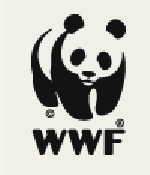Major Responsibilities:
The Senior Communications Officer is responsible for creating a positive image of WWF Nepal through strategic media profiling and relationship building. Under the direct supervision of the Deputy Director-Communications and Outreach, the Senior Communications Officer will identify opportunities for media outreach that advance the conservation goals and objectives of WWF Nepal both locally and globally. S/he will ensure communications outreach through a newsroom set-up that collates and disseminates program impacts, interventions and issues on a regular basis. S/he will also backstop field offices for local level communications and outreach.
Qualifications:
A Bachelors degree, preferably in journalism, mass communications or a related field with at least three to five years of experience in journalism or communications. The ideal candidate for this position should possess good skills in microsoft office program and digital communications tools along with strong interpersonal and organizational skills.
**Apply before: 17:00 hours on 7th September, 2017.
Interested applicants are requested to download the application form and send the same with an application letter to the email address hr@wwfnepal.org.
Please mention the position you are applying for as the subject. Emails without an application letter and completed application form will not be entertained. Only shortlisted candidates will be informed. Detailed TOR for the mentioned position can be downloaded.
This Job is expired. The Company is no longer accepting applications for this position.
WWF is the world’s leading independent conservation organization originated from Switzerland in 1961 and currently running in more than 100 countries across 6 continents. The program started from conservation of wildlife to broader concept of building future where humans can live in harmony with nature. WWF has created 1,480 ecoregions that categorize the world into its natural ecosystems. Nepal with Bhutan, northeast India, southeast Tibet and northern Myanmar, falls under the Eastern Himalaya region housing the threatened species Snow Leopards, Bengal Tigers and One-horned Rhinos.
It was in 1967, WWF initiated WWF Nepal with a rhino conservation program in Chitwan. To keep up with the evolving face of conservation and environmental movement, WWF Nepal’s focus progressed from its localized efforts in conservation of single species in 1960s, integrated conservation and development approach in 1990s, to a new horizon of landscape level conservation encompassing national, regional and global scales of complexity in early 2000s.
